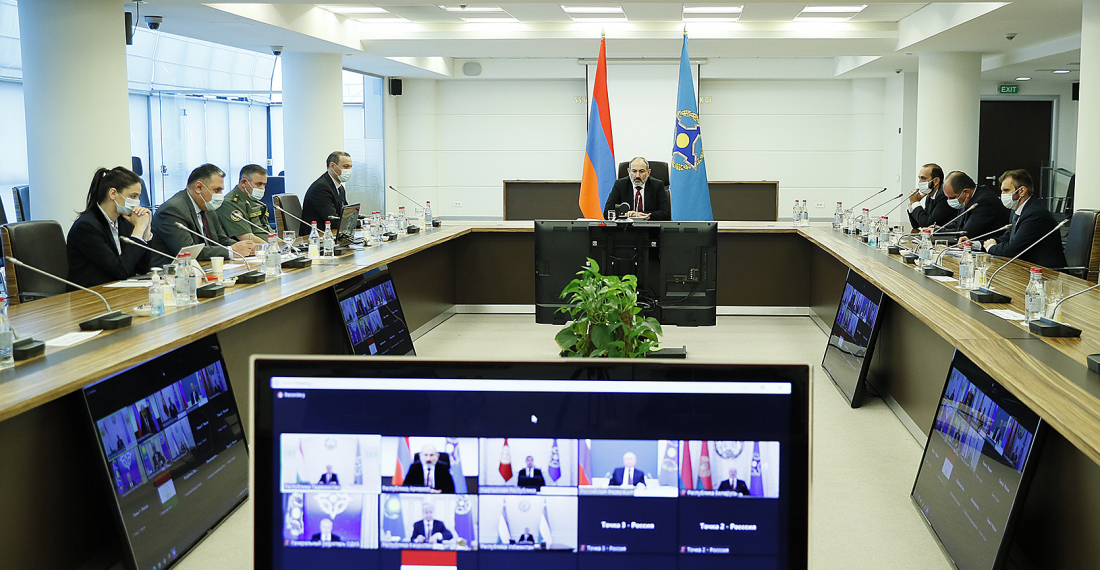The Collective Security Council, the leaders of the countries of the Collective Security Treaty Organisation (CSTO) – Armenia, Belarus, Kazakhstan, Kyrgyzstan, Russia, and Tajikistan – held an extraordinary session via videoconference yesterday (23 August) under the CSTO chairmanship of the president of Tajikistan, Emomali Rahmon. The session was also attended by the CSTO secretary-general, Stanislav Zas, as well as the president of Uzbekistan, Shavkat Mirziyoyev – who was invited as a guest – to discuss the rapidly unfolding developments in Afghanistan and their impact on CSTO member states.
According to the readout by the CSTO, the Collective Security Council members expressed concern at the “drastic deterioration” of the situation, stressing “the importance of responsible restoration of state authority in Afghanistan through an inclusive peaceful dialogue, taking into account the interests of all social, political, ethnic and confessional groups of the country”. They emphasised that the political regime in Afghanistan must be based on the free will of the entire Afghan people.
Considering increasing presence of militants from international terrorist organisations, the Security Council members reportedly agreed to make efforts to develop co-operation between CSTO members to tackle threats emanating from Afghan territory, and to speed up the adoption of a Special Interstate Policy to strengthen parts of the Tajik-Afghan border.
The session was attended by the prime minister of Armenia, Nikol Pashinyan. Armenia is expected to take up the rotating chairmanship of the CSTO on 16 September at the CSTO summit in Dushanbe, where the Collective Security Council members have agreed to discuss the issue of Afghanistan further.
The meeting also reportedly included an online briefing by the CSTO secretary-general on the military and political situation in and around the area of responsibility of the CSTO, the results of CSTO activities in 2020 and the tasks for 2021.



